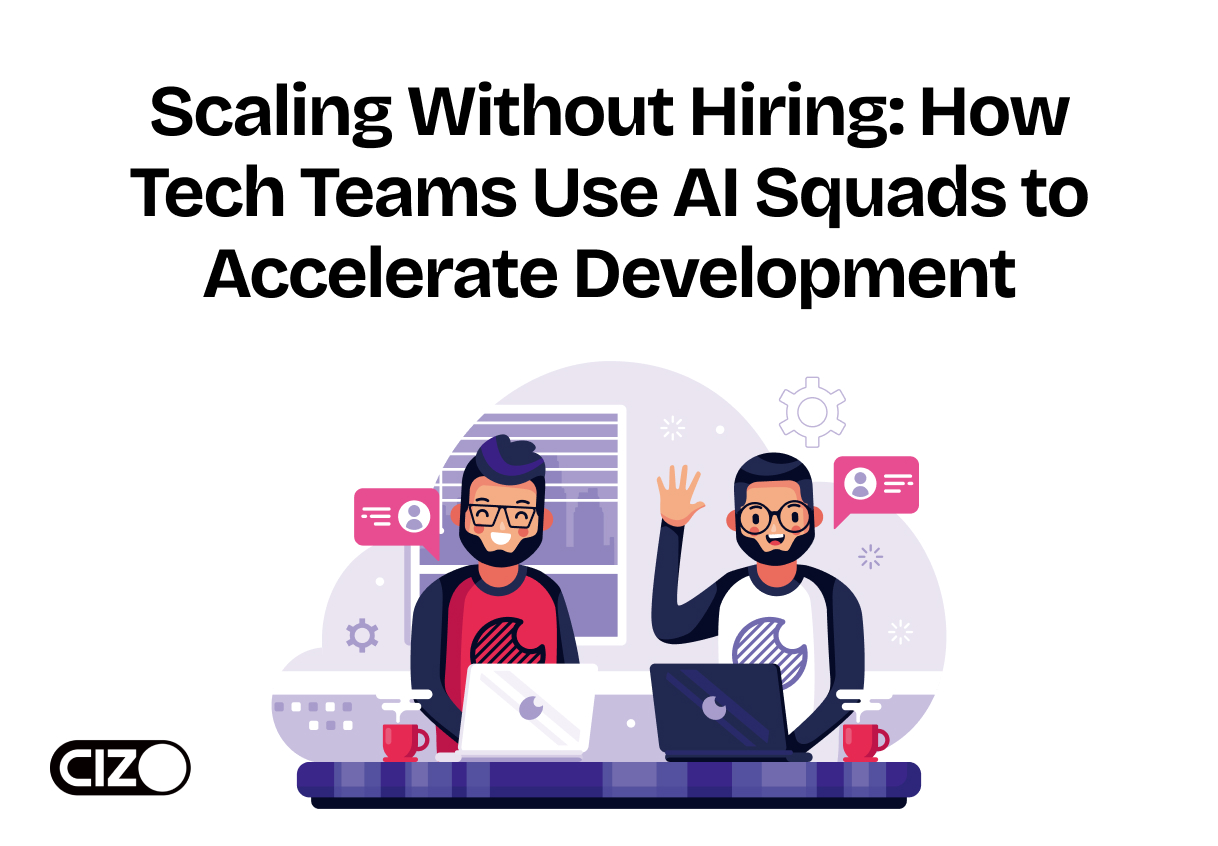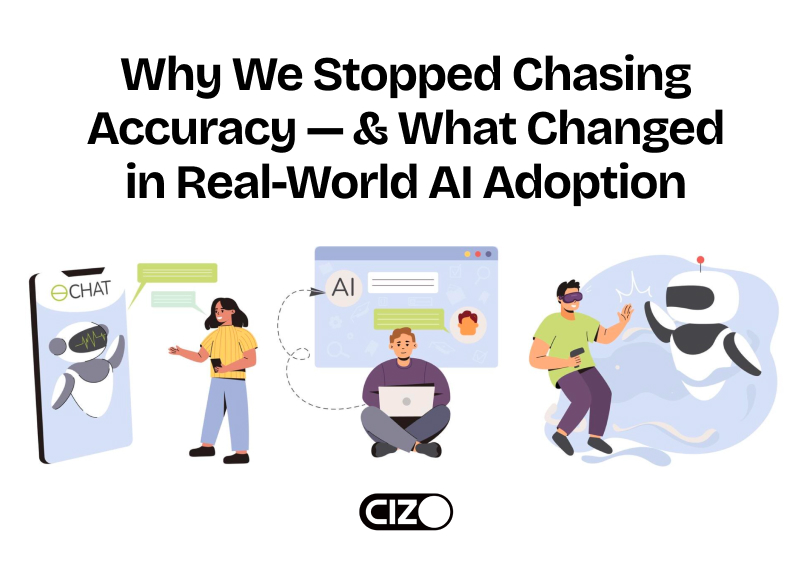 12th August 2024
12th August 2024
Creating Personalized User Experiences in Flutter with AI
In today’s digital world, people expect more from the apps they use. They want experiences that feel just right for them, not just a one-size-fits-all solution. This is where personalization in mobile app development comes in.
Imagine an app that knows what you like, understands your needs, and even predicts what you might want next.
This kind of experience makes using the app fun, engaging, and super useful. And now, with the power of AI (Artificial Intelligence) combined with Flutter, creating these personalized experiences is easier than ever.
We only collect information for business use as detailed in our Privacy Policy
What is Flutter?
Before we dive into how AI can enhance user experiences in Flutter, let’s quickly go over what Flutter is. Flutter is an open-source framework created by Google for building natively compiled applications for mobile, web, and desktop from a single codebase. It’s fast, easy to use, and comes with a rich set of pre-designed widgets, which make it a popular choice for developers.
What is Personalization in Apps?
Personalization in apps means tailoring the app’s content, layout, and features to fit each user’s preferences, behaviors, and needs. It’s like walking into your favorite store where the staff knows your name, remembers what you like, and even suggests items you might love based on what you’ve bought before.
For example:
- Recommendations: Think about music streaming apps. They suggest songs based on what you’ve listened to before.
- Content: News apps might show you articles related to topics you’ve previously read about.
- Layout: Some apps allow you to arrange the layout according to your liking, putting your most-used features within easy reach.
How AI Enhances Personalization
Artificial Intelligence is like a super brain for apps. It processes tons of data quickly and can learn from that data to make smart decisions. Here are a few ways AI can take app personalization to the next level:
- User Behavior Analysis: AI can study how users interact with the app—what they click on, how long they stay on a page, what features they use most, etc. This data can help the app adapt to each user’s habits.
- Predictive Analytics: AI can predict what users might want based on past behaviors. For example, if a user regularly shops for certain items in an app, AI can suggest similar items even before the user starts searching.
- Natural Language Processing (NLP): AI can understand and respond to user input in natural language, making interactions more intuitive. For example, a chatbot powered by AI can provide personalized responses based on user queries.
- Dynamic Content: AI can change the content displayed to users in real-time based on their preferences or previous interactions. For instance, a news app might show articles on technology to a user who often reads tech-related content.
Building Personalized Experiences in Flutter with AI
Now that we understand the power of AI, let’s explore how we can combine it with Flutter to build high performance Flutter apps for your business.
1. Integrating AI Libraries with Flutter
Flutter allows easy integration with various AI libraries and tools. These include TensorFlow Lite, Firebase ML Kit, and custom models. By integrating these tools, developers can add intelligent features to their apps, such as image recognition, text analysis, and recommendation engines.
For example:
- TensorFlow Lite: This is a lightweight version of TensorFlow, which is perfect for running machine learning models on mobile devices. You can use it in Flutter to recognize images, detect objects, or even analyze text.
- Firebase ML Kit: Firebase offers machine learning tools that are easy to use. With ML Kit, you can add features like face detection, text recognition, and image labeling to your Flutter app.
2. Using AI for User Behavior Analysis
Flutter apps can track user interactions to gather valuable data. By integrating AI, you can analyze this data to understand user behavior patterns. For instance, if your app notices that a user spends a lot of time reading articles about a certain topic, it can start recommending more articles on that topic.
This analysis helps in creating a more personalized experience, making users feel like the app “gets” them.
3. Implementing Predictive Features
AI’s ability to predict user behavior is a game-changer. In Flutter, you can create features that anticipate what the user might want next. For example, in a shopping app, AI can suggest products based on the user’s previous purchases and browsing history. By implementing predictive analytics, you can keep users engaged by showing them content they’re likely to be interested in, even before they search for it.
4. Enhancing User Interaction with NLP
Natural Language Processing allows apps to understand and respond to user input in natural language. In a Flutter app, you can integrate AI-powered chatbots or voice assistants that can hold conversations with users. These chatbots can provide personalized responses, answer questions, and even make recommendations based on the conversation. This creates a more interactive and engaging user experience.
For example:
- Chatbots: You can build a chatbot in your Flutter app that understands user questions and provides relevant answers. If a user asks for movie recommendations, the chatbot can suggest movies based on the user’s past preferences.
- Voice Assistants: AI-driven voice assistants can help users navigate the app hands-free. By recognizing voice commands, the assistant can perform tasks, search for information, and provide recommendations.
5. Delivering Dynamic Content
One of the most powerful features of AI is its ability to deliver dynamic content. In a Flutter app, you can use AI to change what content is shown to users in real-time, based on their preferences. For instance, an e-commerce app can show personalized product recommendations on the homepage, tailored to each user’s shopping habits.
This dynamic approach keeps the app fresh and relevant for users, increasing engagement and satisfaction.
Real-World Examples of Personalized Experiences in Flutter Apps
Here are a few real-world examples of how personalization and AI are used in Flutter apps:
- Streaming Services: Apps like Netflix and Spotify use AI to suggest movies, TV shows, and music based on what users have watched or listened to before. With Flutter, similar experiences can be created for any media-based app.
- E-commerce Platforms: E-commerce apps use AI to recommend products, offer personalized discounts, and even predict what users might want to buy next. By integrating AI with Flutter, you can build shopping apps that feel tailor-made for each user.
- News Apps: News apps can analyze what articles users read and then show similar content. AI can also categorize news based on user preferences, ensuring that users see the most relevant stories first.
Challenges and Considerations
While AI can significantly enhance personalization in Flutter apps, it’s essential to consider a few challenges:
- Privacy Concerns: Collecting and analyzing user data for personalization can raise privacy issues. It’s crucial to be transparent about what data is collected and how it is used. Ensure your app complies with privacy laws and provides users with control over their data.
- Data Management: AI relies on large amounts of data to make accurate predictions. Managing and storing this data securely is critical. It’s also important to consider the performance impact of processing data on mobile devices.
- Bias in AI: AI systems can sometimes reflect biases present in the data they are trained on. This can lead to unfair or inaccurate predictions. It’s important to test your AI models thoroughly and ensure they provide fair and accurate results.
The Future of Personalized User Experiences with Flutter and AI
The combination of AI and Flutter offers a powerful toolkit for creating personalized user experiences. By leveraging AI’s ability to analyze data, predict user behavior, and provide tailored content, you can make your Flutter apps more engaging, relevant, and enjoyable for users.
As technology continues to advance, the possibilities for personalization will only grow. Whether you’re building a shopping app, a streaming service, or any other type of application, integrating AI with Flutter can help you stand out in a crowded market by offering users an experience that feels uniquely theirs.
At Cizo Technology, we specialize in integrating cutting-edge AI solutions with Flutter to create truly personalized and engaging user experiences. If you’re looking to enhance your app with the latest AI technologies, our Flutter app development services are here to help. Let’s build something amazing together!
HAVE A LOOK AT OUR OTHER ARTICLES
A PROJECT WITH CIZO?











 hello@cizotech.com
hello@cizotech.com +91 79907 01039
+91 79907 01039 


